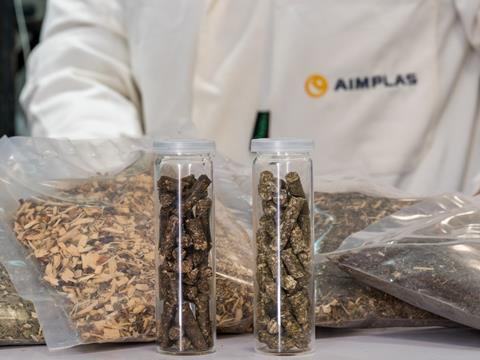
The European BeonNAT project claims to have demonstrated the viability of cultivating biomass from poplar, elm, birch, and other organic materials to produce bioplastics for bioactive cosmetics, biochar, activated carbon, and pet litter with essential oils.
Coordinated by the Centro de Investigaciones Energéticas, Medioambientales y Tecnológicas (CIEMAT), the project aims to drive the creation of value chains that utilise trees and shrubs grown on marginal lands as a source of biomass for bio-based industries.
It also features contributions from AIMPLAS, the Plastics Technology Centre, Fundación Centro de Servicios y Promoción Forestal y de su Industria de Castilla y León, Consorzio per la Ricerca e la Dimostrazione sulle Energie Rinnovabili, Leibniz Institut für Agrartechnik und Bioökonomie (ATB), Brandenburgische Technische Universität Cottbus-Senftenberg, Universitatea Ștefan cel Mare din Suceava, Instituto Politécnico de Bragança (IPB), Laboratorios Maverick, Tolsa, Contactica, Idoasis 2002, El Jarpil, Envirohemp, NNFCC Limited, and the Asociación para la Certificación Española Forestal.
For the first stage of the project, the consortium assessed the suitability and industrial applicability of different species; these include Siberian elm, common juniper, hoary rock-rose, rosemary, birch, common broom, blackwood acacia, mora, common hornbeam, and black poplar.
Six locations were chosen to grow the materials, including Velefique and Lubia in Spain, alongside other locations in Germany and Romania. The Selection Committee identified the six ‘most promising’ species – including black poplar grown in Zamostea and blackwood acacia grown in Moara, which have apparently proven useful for producing lactic acid for use in bioplastics – to assess their compatibility with end product manufacturing.
Siberian elm is thought to have produced good results for commercial activated carbon and biochar – and for pet litter made with essential oils, alongside birch and rosemary. Common juniper is also said to offer ‘promising results’.
The first particle board tests have reportedly been completed, and particle board with low formaldehyde emissions were apparently obtained from all species. Boards derived from certain tree species are said to have shown good mechanical properties.
Pulp was obtained from all species in kraft pulping tests, it is claimed, although pulp derived from juniper, rosemary, and mora are not thought to exhibited the appropriate properties. The common broom shrub species performed well in both particle board and pulp applications, the coalition says, with tests currently being performed on the species’ bioactive potential.
The next phase of the project intends to carry out tests using bio-based products and assess the suitability of selected raw materials for the scale-up process.
At the 17th EUBP conference, European Bioplastics predicted that the global capacity of bioplastic production would increase by 4.7 million tonnes between this year and 2027.
Spark Sourcing has also received a US patent for its GEX bio-calcium, which is derived from eggshells. The certification declares the material environmentally friendly, waste-saving, and a method of reducing plastic by 50%.
Meanwhile, the EU-funded Bio-Uptake project, co-ordinated by Aitiip Centro Tecnológico, aims to to develop bio-based intermediates to manufacture eco-container lids and other products.
If you liked this article, you might also enjoy:
The Lidl approach to packaging sustainability
How did Brazil achieve its 100% aluminium can recycling rate – and can it be replicated in the EU?
Experts have their say on the EU’s Packaging and Packaging Waste Directive revisions
A deep dive into the most important packaging sustainability trends and solution













No comments yet